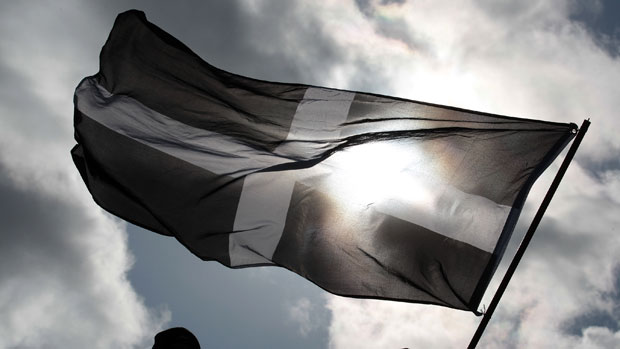What 'national minority' status will mean for Cornwall
The UK will recognise Cornish people as a minority group – but what does that mean in practice?

A free daily email with the biggest news stories of the day – and the best features from TheWeek.com
You are now subscribed
Your newsletter sign-up was successful
DANNY ALEXANDER, Chief Secretary to the Treasury, will announce in Bodmin today that the Coalition is to grant the Cornish people "national minority" status under the umbrella of a Council of Europe convention.
The new status had been sought by "campaign groups, MPs and the Council of Europe's own advocacy committee", says the Western Morning News, a regional paper which covers Cornwall, Devon and Somerset.
Stephen Gilbert, Lib Dem MP for St Austell and Newquay, has welcomed the news, saying: "This will help us grow and remember our important heritage". Cornish nationalist Dick Cole says it is a "proud day".
The Week
Escape your echo chamber. Get the facts behind the news, plus analysis from multiple perspectives.

Sign up for The Week's Free Newsletters
From our morning news briefing to a weekly Good News Newsletter, get the best of The Week delivered directly to your inbox.
From our morning news briefing to a weekly Good News Newsletter, get the best of The Week delivered directly to your inbox.
However, the BBC quotes Cornwall Council leader John Pollard as saying the new status would not bring any additional funding or powers to the council or to Cornwall. So what will it actually mean?
What is the new status?The Cornish people will now be recognised as a "national minority" under the terms of the Council of Europe's 'Framework Convention for the Protection of National Minorities'. The convention expresses a resolution to foster minority groups and the UK has been one of 43 signatory nations since 1995. This is the first time the Cornish have been included, however.
What does the convention enshrine?By ratifying the convention, the UK has promised to protect the rights of minority groups to "enjoy their own culture, to use their own language, to establish their own schools... and practise their own religion". Signatories promise to preserve and develop that culture, promote equality, guarantee access to minority languages and education - and help groups take part in public life and the media.
Why wasn't Cornwall recognised already?There has been criticism of the convention because it does not contain a definition of "national minority" and so has been interpreted differently by different nations. The UK signed up on the understanding it applied to racial groups as defined by the Race Relations Act of 1976 - and the previous Labour government argued that the Cornish were not a distinct race.
A free daily email with the biggest news stories of the day – and the best features from TheWeek.com
Is Cornwall more than a county?Not legally - but it is generally recognised as a Celtic nation. As in other western parts of the UK – Wales and the West Highlands of Scotland – Celtic culture clung on there when Germanic immigrants swept in from the east during the Dark Ages. The Western Morning News notes that 84,000 people declared themselves Cornish in the 2011 census. Cornwall has its own nationalist political party – Mebyon Kernow – and flag, the black-and-white cross of St Piran, regarded as its patron saint.
Does anyone still speak Cornish?Unlike Welsh, or Scottish Gaelic, Cornish became extinct in the 19th century, but recent efforts have seen it resurrected. Dual-language street signs have been introduced and in 2002 the BBC reported a Cornish-language feature film had been made, Hwerow Hweg (Bitter Sweet). Later that year, Cornish was granted EU "minority language" status after intensive lobbying by Lib Dem St Ives MP Andrew George. He became the first member of parliament to use Cornish for his official swearing-in in 2005, the BBC reported.